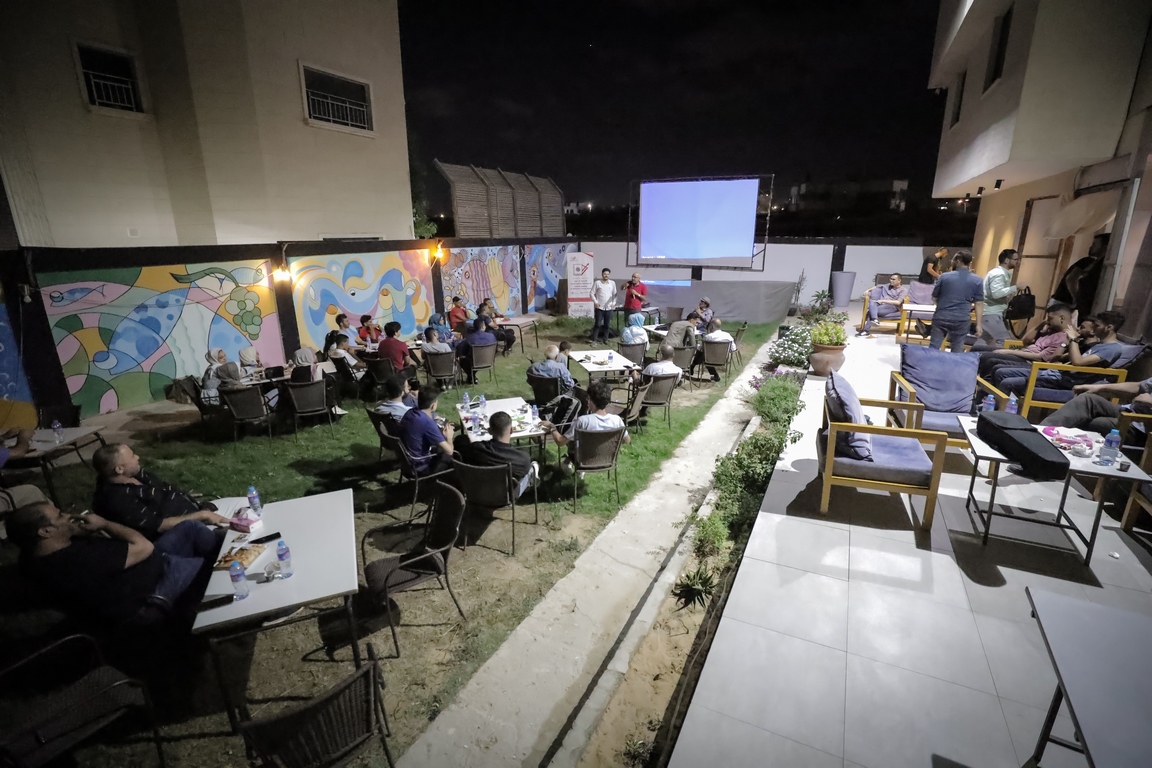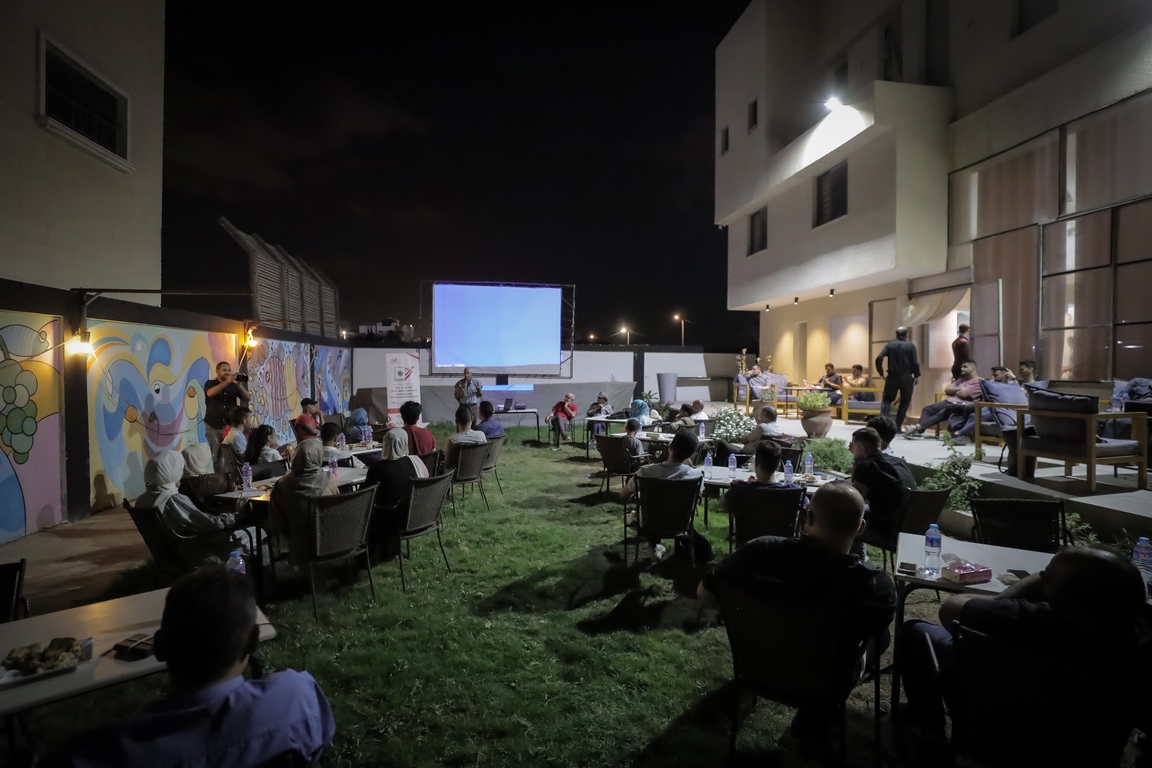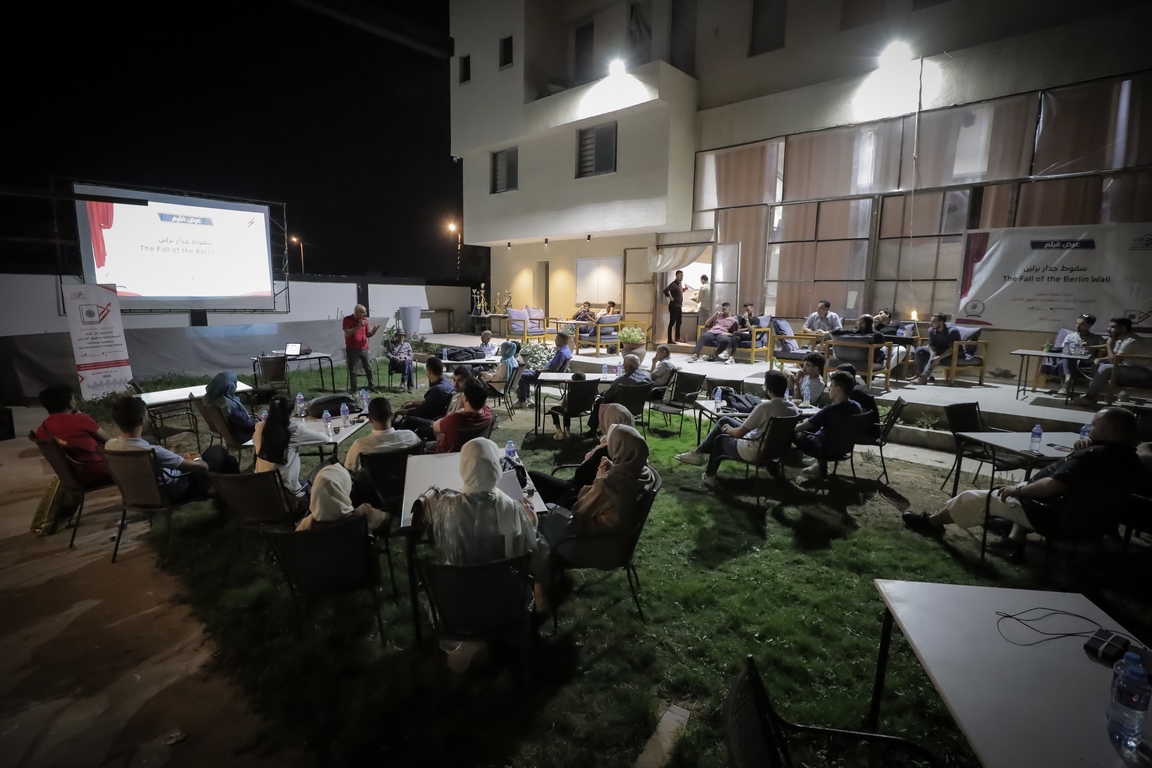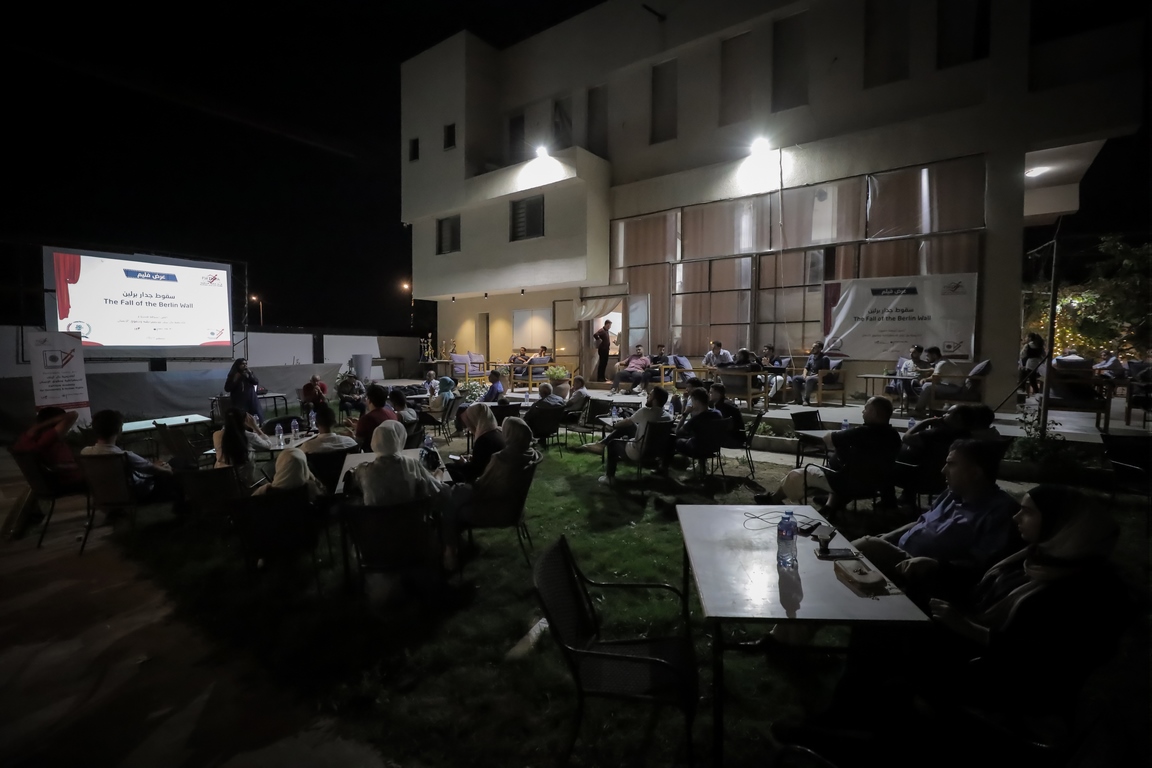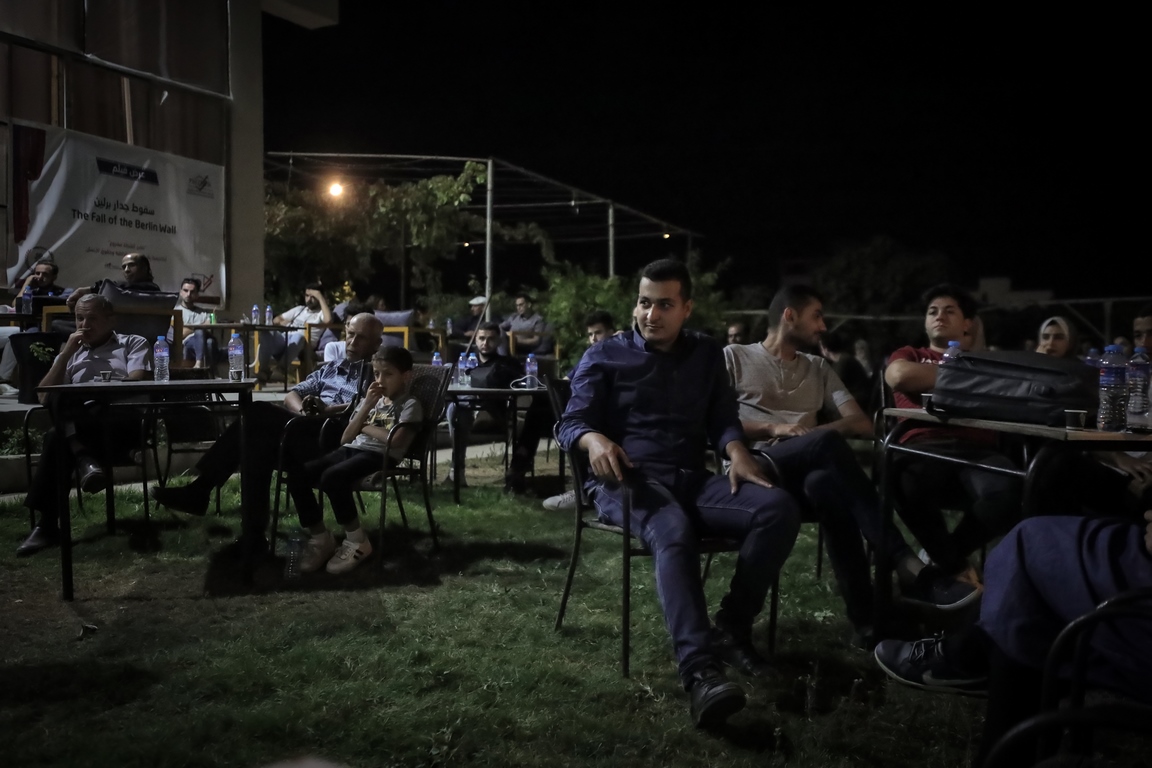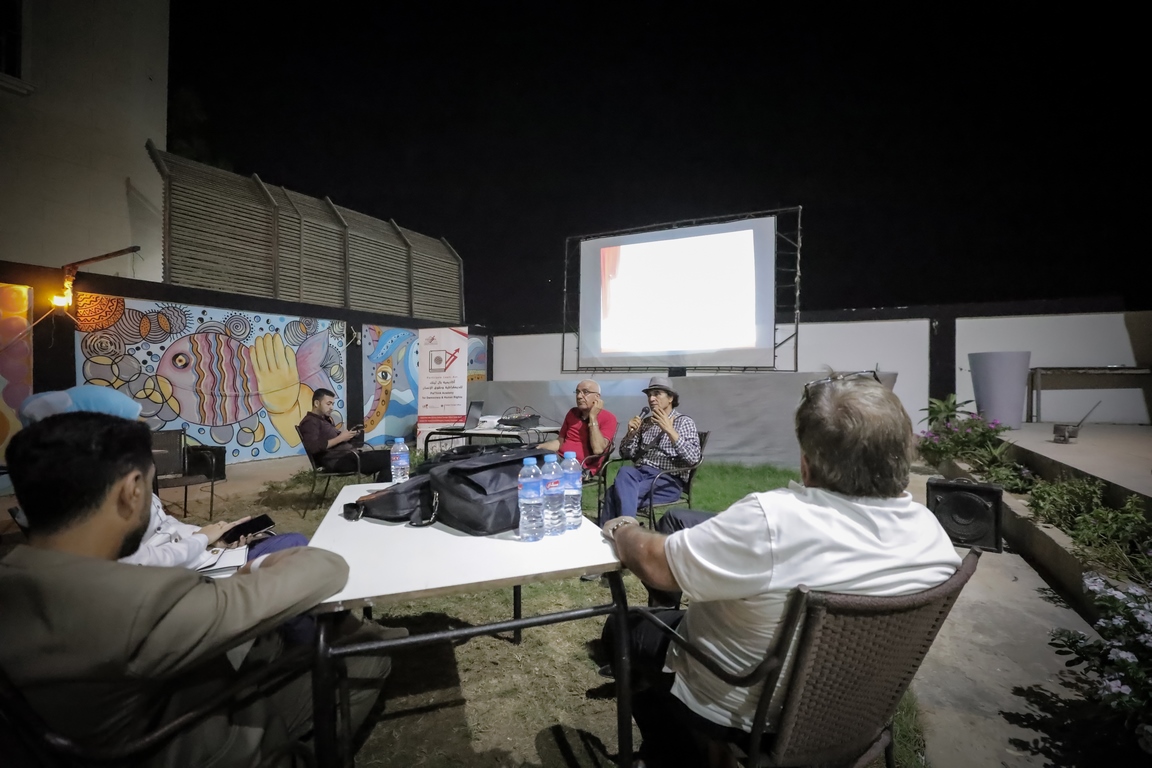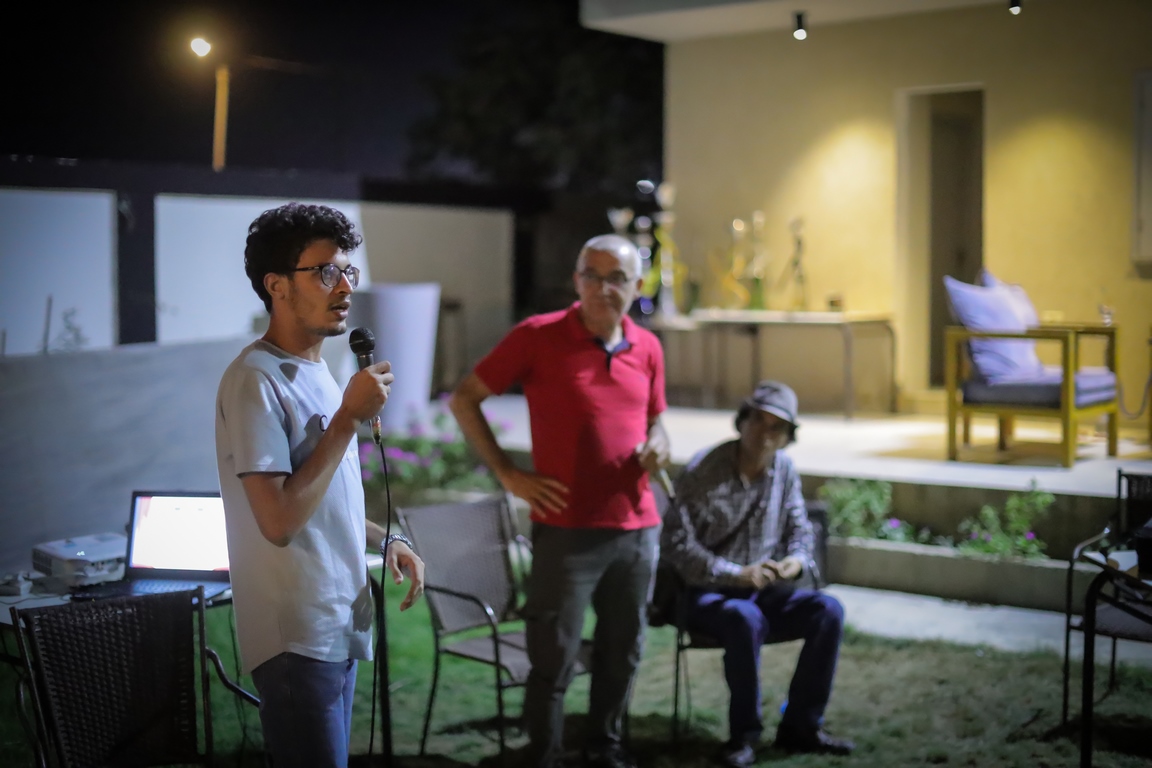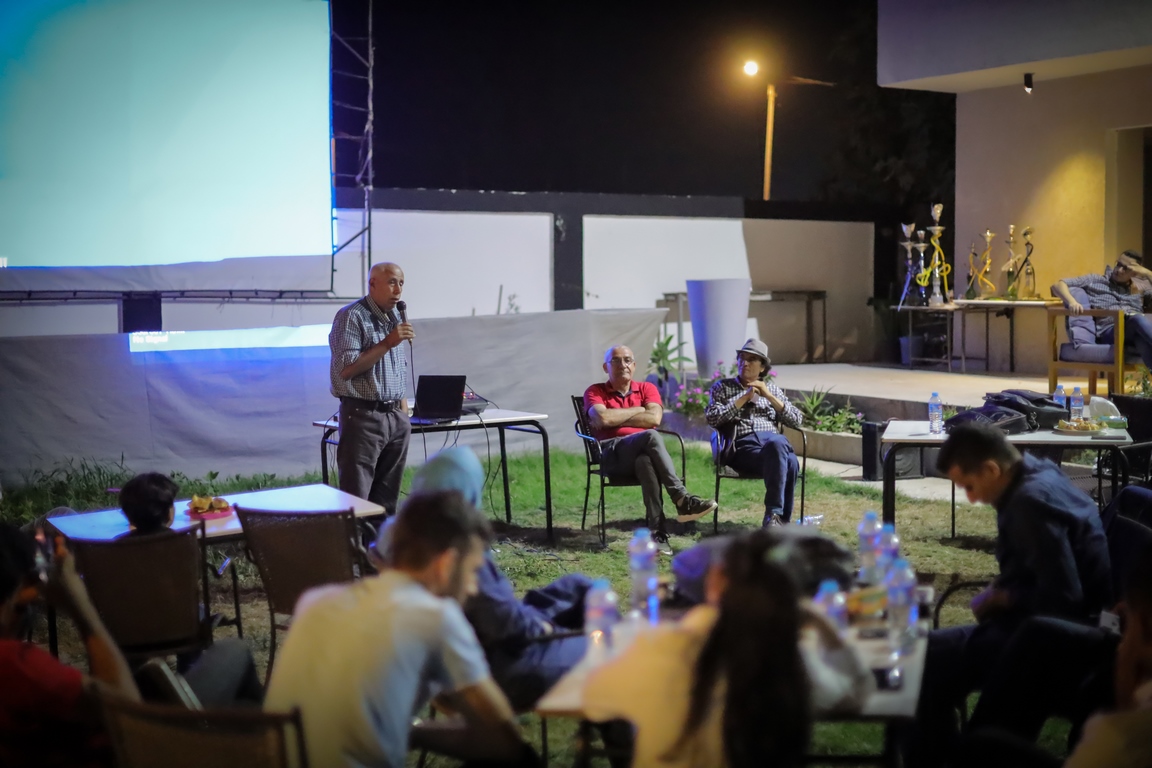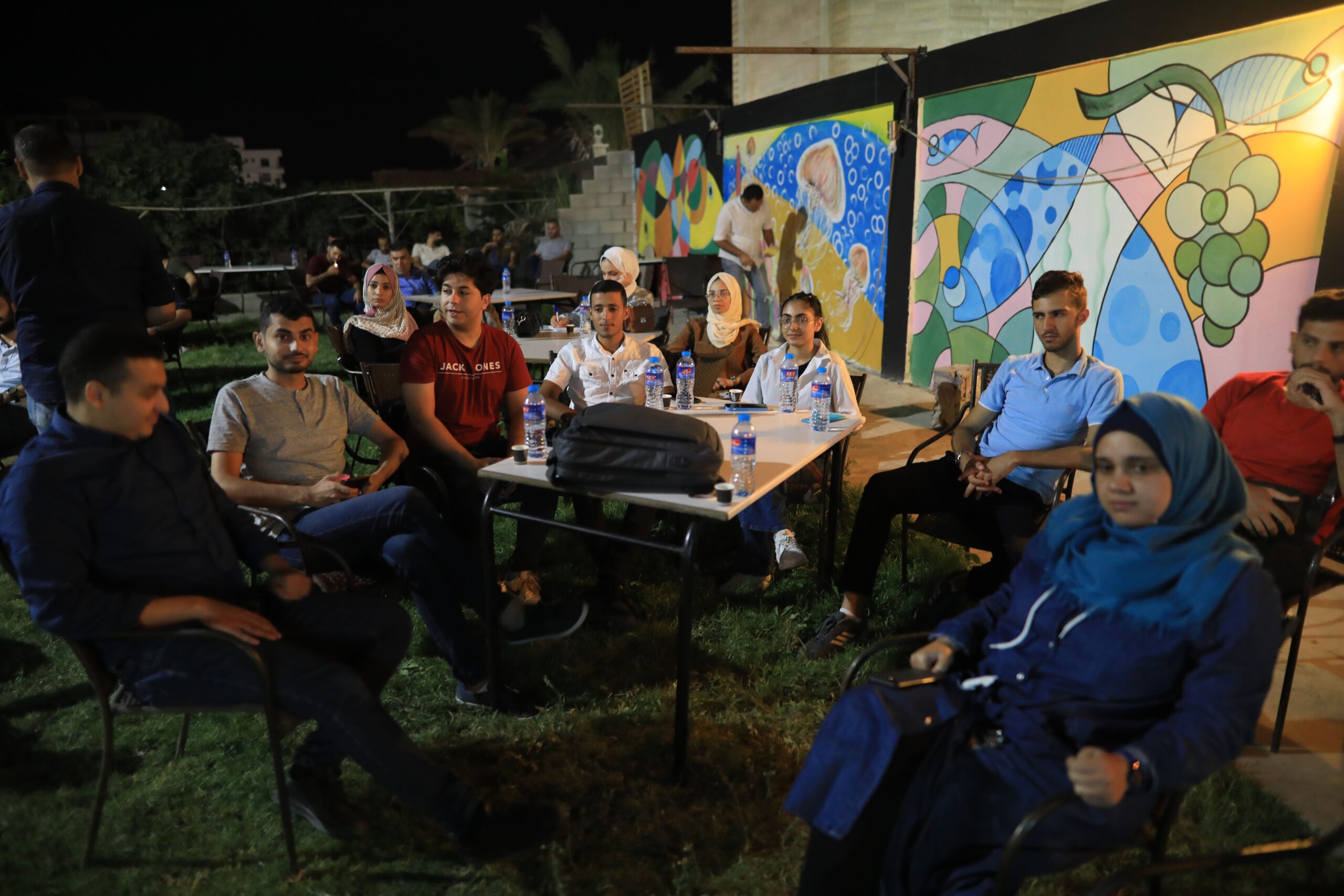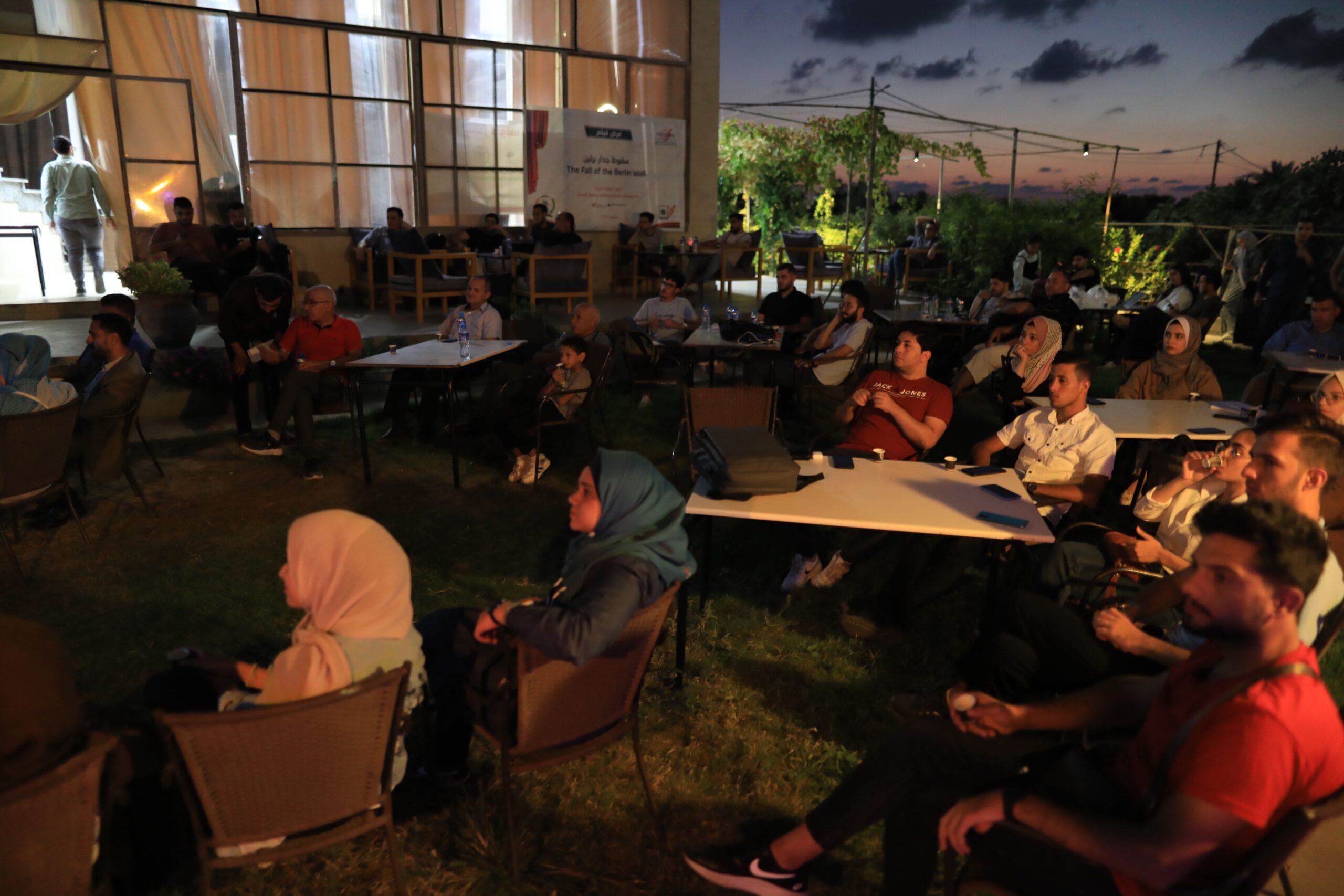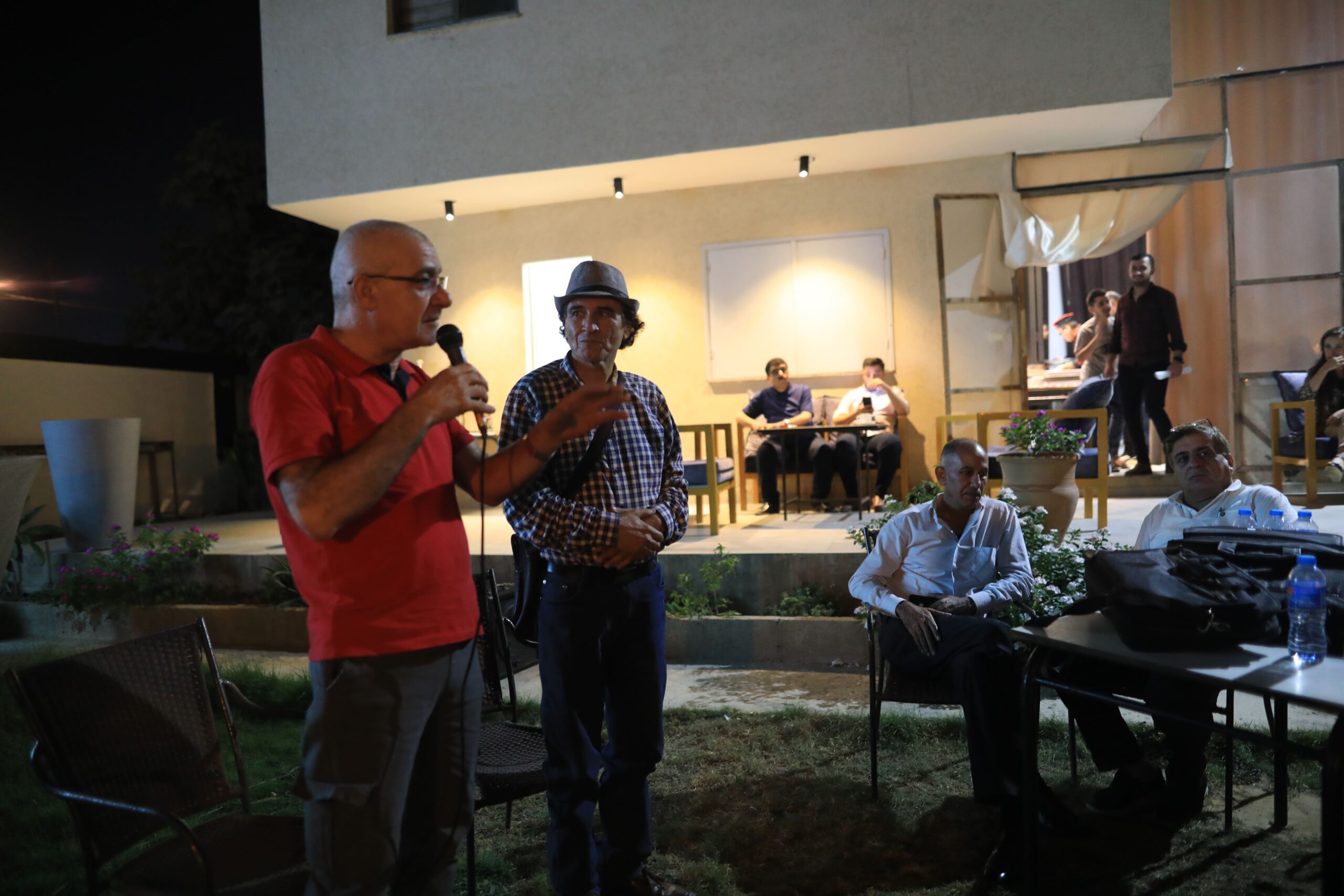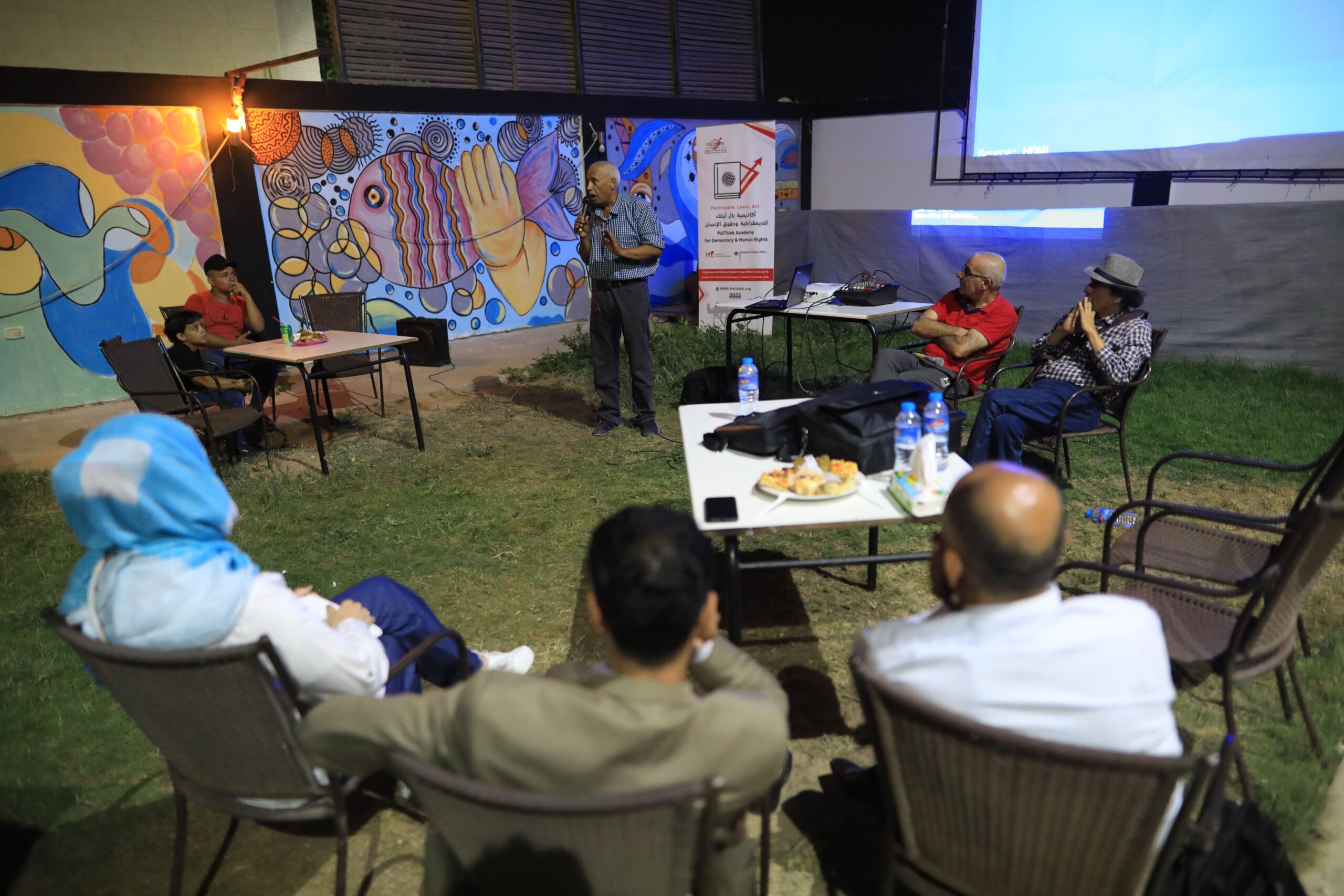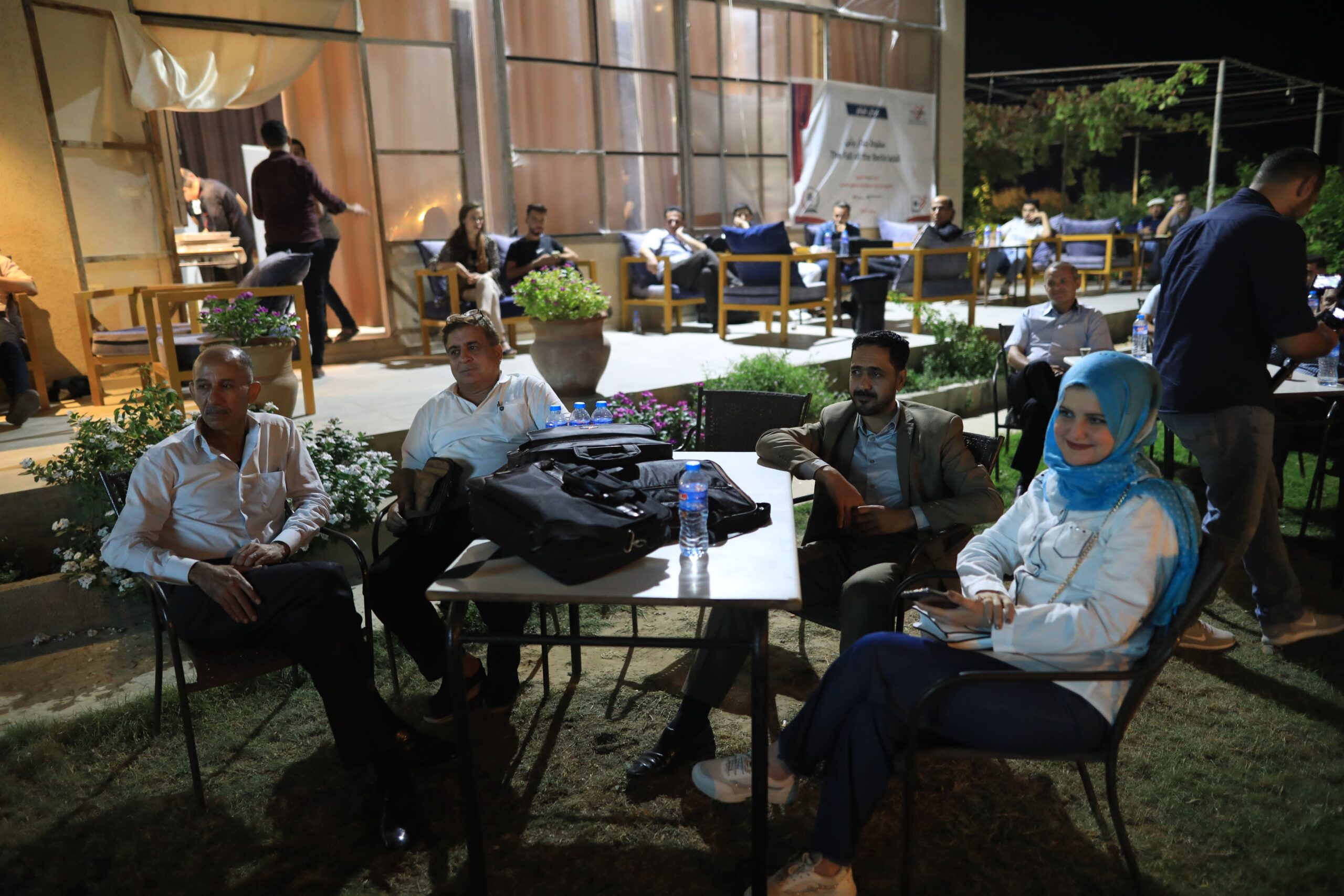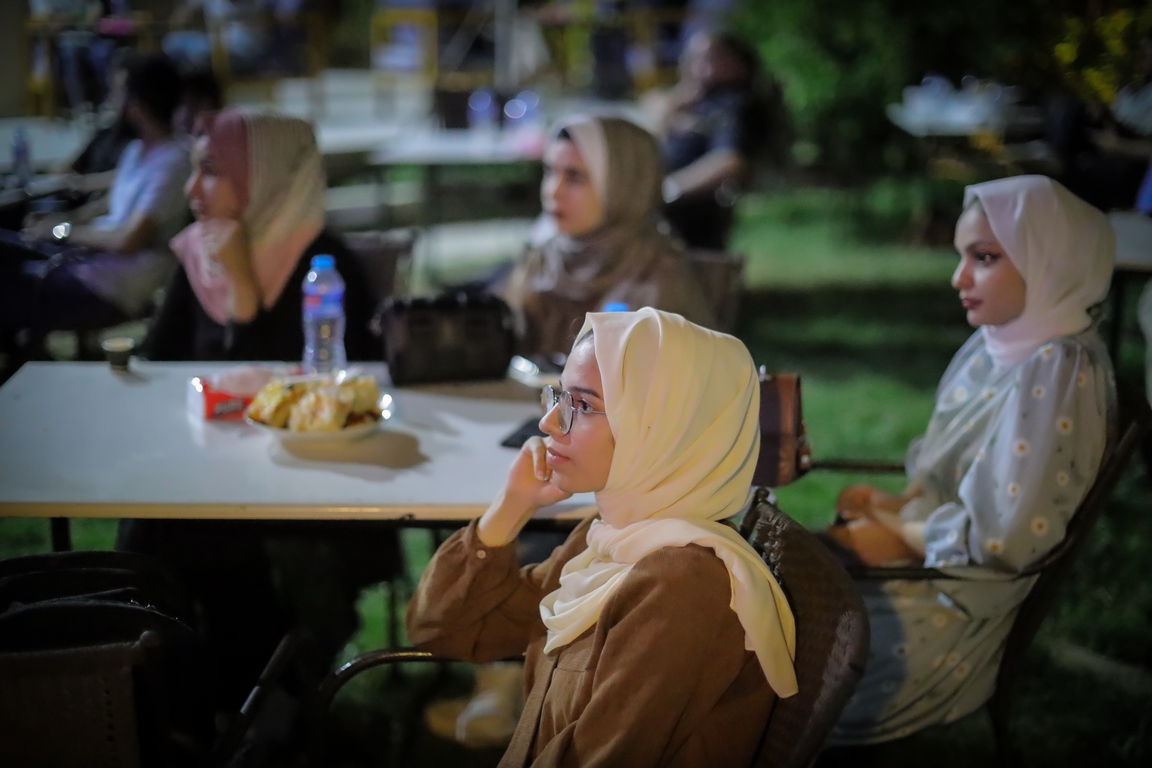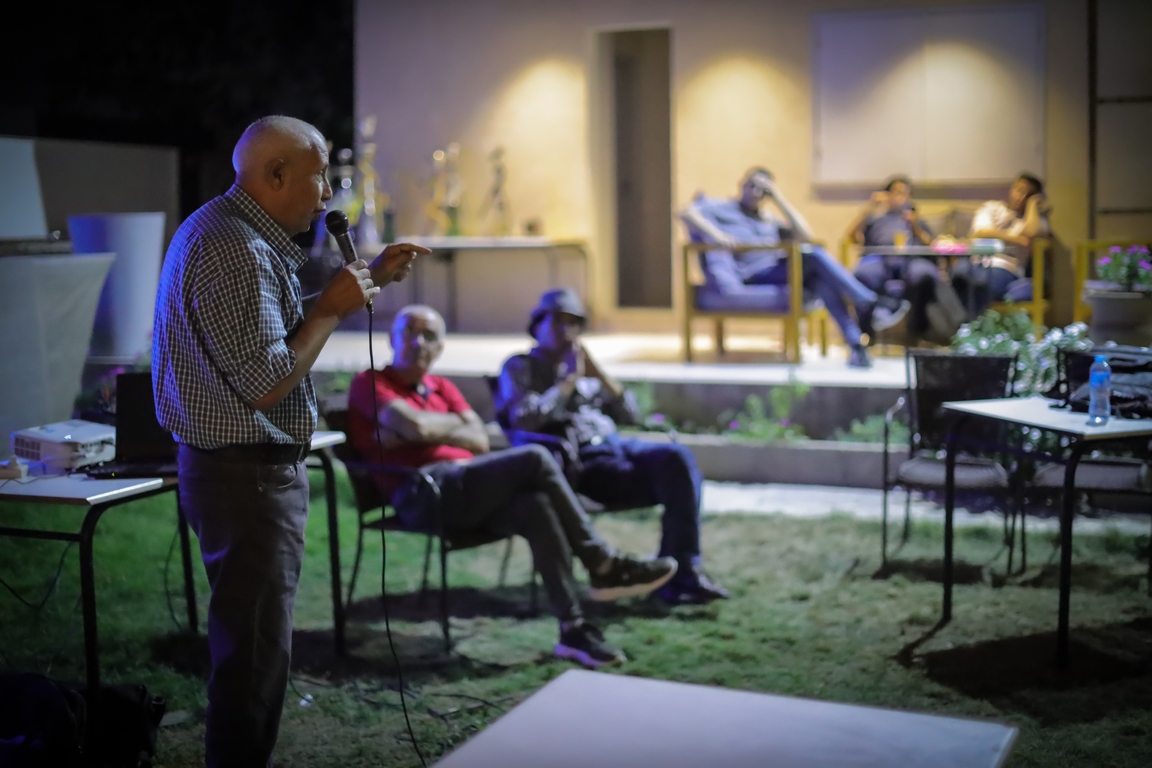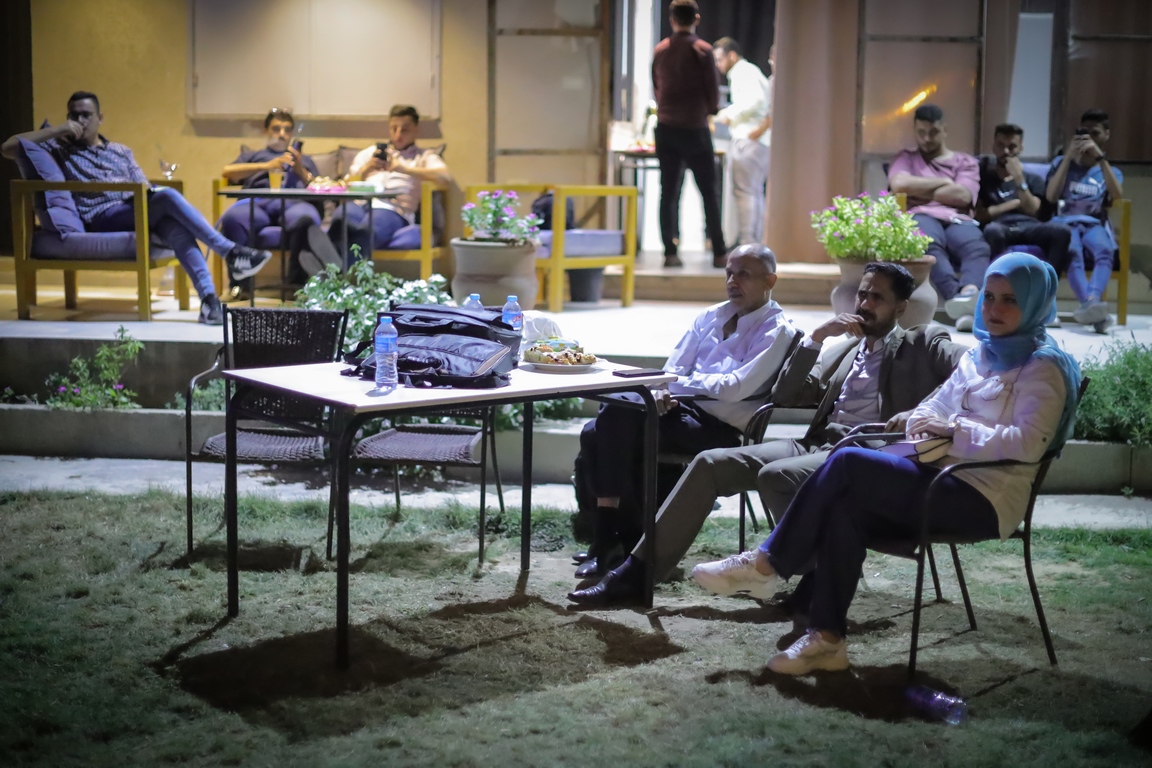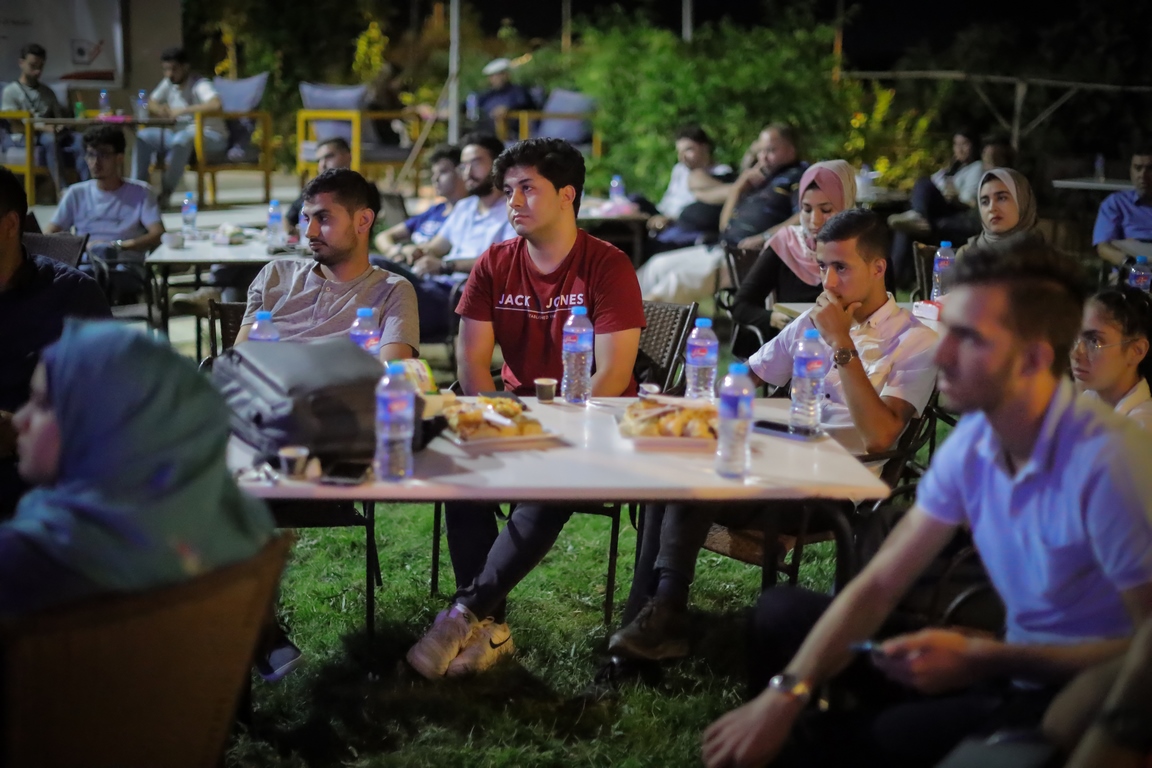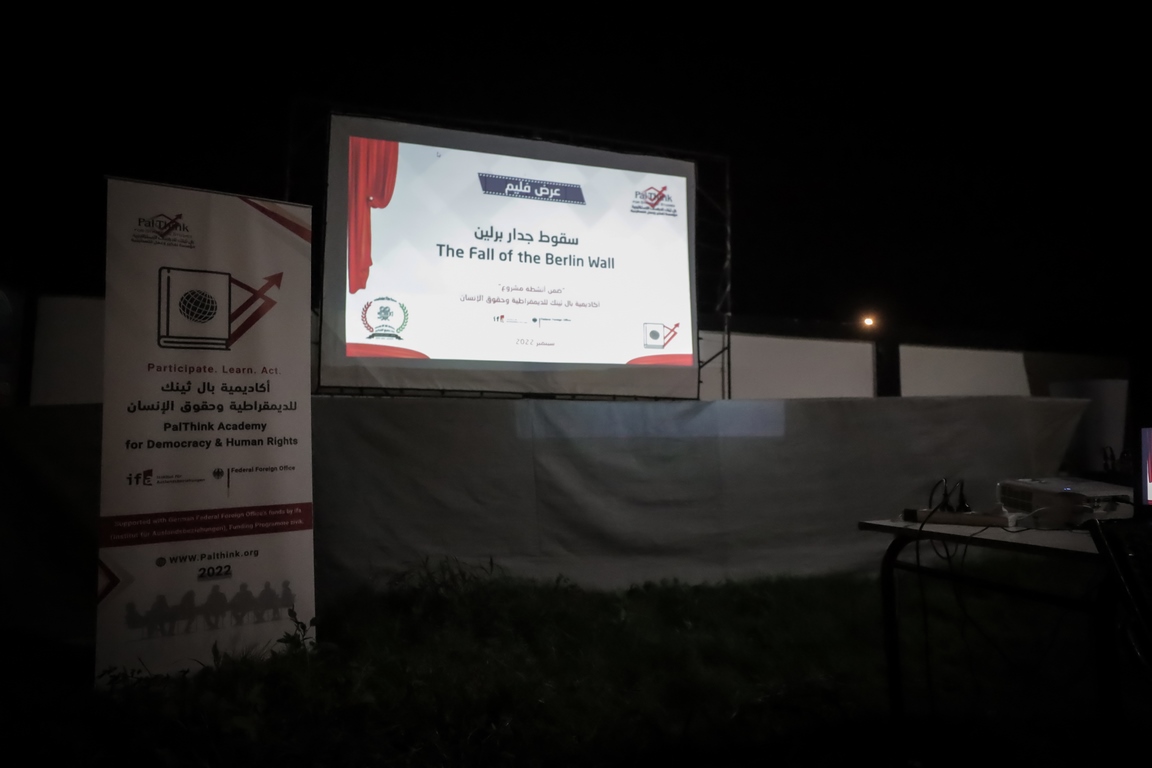
As part of its work in promoting community awareness and consolidating the values of reconciliation and tolerance, PalThink for Strategic Studies organized this week screening and discussion session of a documentary entitled “The Fall of the Berlin Wall” at the Jamal Cultural Gallery in Gaza City, in cooperation with the Palestinian Film Forum as part of the activities of the PalThink Academy for Democracy and Human Rights project. A large number of young members of the Academy, in addition to a number of Palestinian artists, researchers and thinkers attended the discussion. The film reviewed events starting from the end of World War II and the division of Germany between the Allies and the Soviet Union, which led to the establishment of East and West Germany, then the division of the capital Berlin itself and the construction of the wall that separated the two parts of Berlin to prevent Germans from emigrating from East Germany to West Germany, ending with the fall of the wall after demonstrations that swept the country. The screening of the film was followed by an in-depth discussion on how to understand the German experience, opened by PalThink’s Director, Omar Shaaban, who said that the fall of the Berlin Wall was one of the most important events that shaped the current geopolitics of the world, stressing the need to “draw conclusions from global experiences in addressing our internal problems.” He talked about the role that PalThink plays in raising youth awareness through meetings, lectures, discussions of books, and documentaries, as well as building bridges between Palestinian youth of different orientations and spectra. For his part, the head of the Palestinian Film Forum, film director Saud Muhanna, addressed the film from an artistic point of view, saying that "it is of great importance because it reminds us of what is happening in Gaza and the West Bank, and it gives hope for the end of the occupation and the end of the division as the two Germans united." Muhanna said that "the existing wall in Palestine is not only made of cement, there are walls of customs, traditions, ideas, and policies, all of which must be removed by focusing on them in the media and cinema." A number of members of the Academy commented on the film and the similarity of what happened in Germany with the Palestinian case, despite the specifics of each experience, stressing that the ultimate fate of the walls and barriers is the collapse. The participants talked about the role of the occupation in building walls in our Palestinian reality and the importance of removing them, and the role and capacity of society, awareness, and peaceful action in bringing about change and ending division. The attendees emphasized the role of peaceful popular movements in changing reality and formulating a better future and not despairing of achieving political and national goals, as well as the danger of social barriers, stereotypes, misconceptions, customs, and traditions, and the need to work to correct them. The session came as part of the activities and events of the PalThink Academy for Democracy and Human Rights project funded by the German ifa's Funding Programme zivik.



 Home
Home Literature
Literature Studies
Studies Reports
Reports Book
Book International Conventions
International Conventions Links
Links Academy News
Academy News Opportunities
Opportunities Networking
Networking Your opinion
Your opinion
